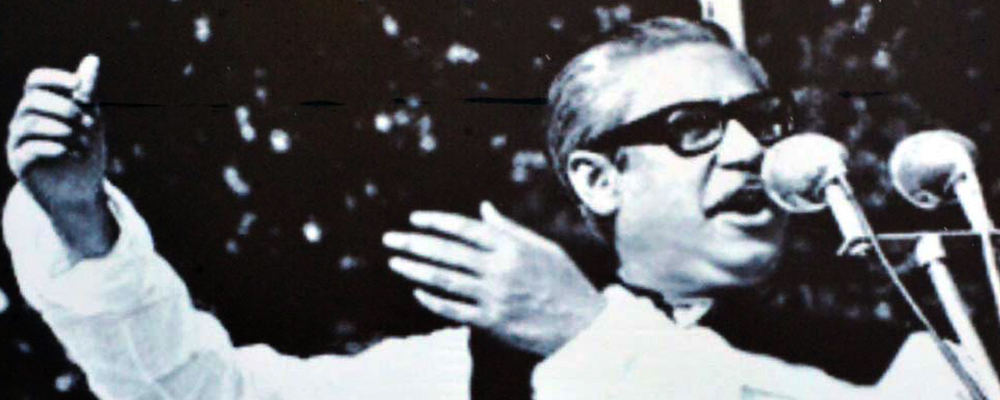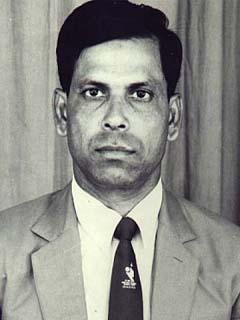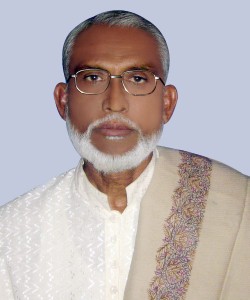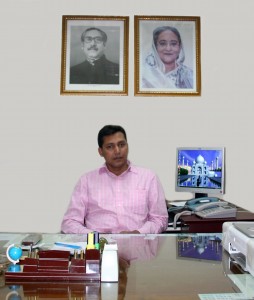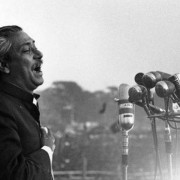A short speech with a long and deep meaning
Lord Brabazon (1910-1974), British Conservative politician, once made the remark: “I take the view, .. that if you cannot say what you have to say in twenty minutes, you should go away and write a book about it”. It so happened that Bangabandhu, in his historic 7 March speech, said all he had to say in exactly 19 minutes; and he took less than one minute of Lord Brabazon’s prescribed time-slot for a perfect speech. Nevertheless, this was Bangabandhu’s finest speech under the most trying of the circumstances. This was also the most decisive speech this nation has ever heard; it decided, or to be more specific, indicated the future course of the nation at a time when such a decision/indication was critically important. This speech also marked a discernible transition in the political career of the speaker himself–– he graduated from a populist leader to a statesman. A political leader sees the present in the context of the past, but statesman, besides being aware of the pre-sent, also envisions the future for his people. We as a nation were given the right future direction by this speech at a time when we had been gripped by uncertainty as to our future. We heard what we wanted in a way that pleased us but did not provoke the adversary to immediately go for action against us. It seemed an impending disaster was averted strategically by this speech; and herein lay the master-stroke of statesmanship of the speaker.
What were the contents of the speech that had so many such messages, both apparent and underlying? The speech had two broad parts. The first part was exclusively for the Pakistani rulers; and the second as well as more meaningful one was entirely for us. As it was, the first part prefaced the second purely as a political stratagem.
As the speech was delivered against the gloomy background of a political stand-off, the first part laid out conditionalities for resolving the same. The conditionalities included inter alia trial of the killers, taking the army back to barrack and handing over power to the elected representatives, etc. It does not need any iota of imagination to suggest that Bangabandhu did not believe that these conditionalities would be met and the crisis resolved. The sole purpose of setting these conditionalities was to get across the message of sincerity on the part of Bangabandhu.
As Bangabandhu knew deep down in his heart any political accommodation with the Pakistani ruling junta was an impossibility; the course available for his people was to wrest independence through an armed struggle; and for which, his indications were aplenty. The message and indication were contained in the staccato sentence: “The struggle this time is for our liberation, the struggle this time is for independence”. The sentence immediately preceding this one had the assertion: “We shall liberate the people of Bengal, InshaAllah”. It is worth noting that the word ‘liberation’ was used twice; and ‘independence’ once; and the clearest message was that as independence was what we desired, more important was the aspiration for total liberation. Indeed, independence is a micro-concept, while liberation a macro one. The experience-hardened politician Bangabandhu appeared to have juxtaposed these words consciously and knowing full well the difference in connotation between these two words. At the time-distance of nearly four plus decades since this speech was delivered we squarely face the disturbing reality that, Bangladesh, although independent, is yet to be properly liberated from the constraints that stunt our full development as proper human beings.
The speech not only set the goal of the armed struggle for independence, the strategy for which was also clearly laid out–– it was to be a people’s war to be fought through guerilla strategy; and people were exhorted to turn their homes into fortresses where they would to ready themselves with whatever weapons they could gather. Bangabandhu, at one stage of this speech exuded confidence as he roared: “None can now keep down the people of Bengal”. Indeed, the armed struggle that ensued shortly demonstrated how the people of Bengal fought an unequal people’s war and emerged victorious. More than that, the war was fought exactly as what the speech had indicated. Again, as he shared his hunch and said: “Even if I cannot command you, be ready with whatever you have”. As it was, he had to spend the entire duration of the Liberation War in the Pakistani captivity, but his people did prove that they had the correct understanding of this message.
An opinion goes around that Bangabandhu was expected to declare independence outright on that day, but he did not. Was it so? A little in-depth reading of the core message of the speech is in order. True, it was not an outright declaration, but it was a clear indication of independence short of declaration. As an astute and experienced politician he knew that the unilateral declaration of independence (UDI) was contrary to the principles of international law. Moreover, such a declaration at that time would have put us against the will of the international community. On the contrary, as things turned out, when we started the Liberation War by resisting the crackdown by the Pakistani army, code-named “Operation Searchlight”, we had the blessing of the world public opinion. Above all, an outright declaration on that day would have resulted in massacre and bloodshed on the spot thereby ending our hopes and aspirations.
It was Shakespeare who put in the mouth of Julius Caeser the dialogue: “To stir men’s blood; I only speak right on”. Yes, as Bangabandhu finished his speech and departed we the members of the audience truly felt the blood flowing in our veins had been stirred by this speech.
Author : Prof. Dr Syed Anwar Husain is the Editor of daily sun.



